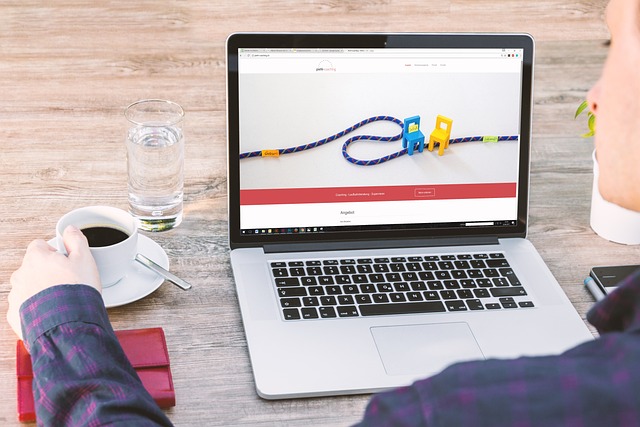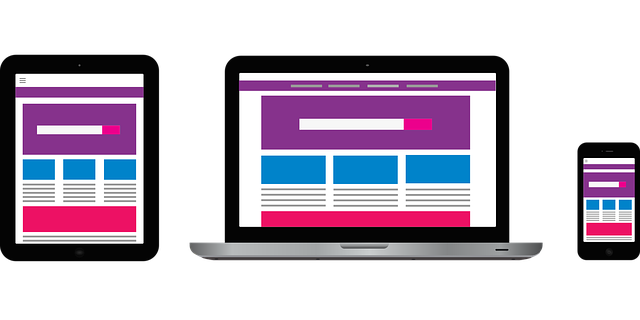Small business web designers play a pivotal role in helping entrepreneurs establish powerful online presences. They craft visually appealing, functional websites tailored to unique client needs, prioritizing user experience (UX) across devices and e-commerce integration. Effective communication is key as they translate brand identities into compelling digital experiences. Hiring specialists offers significant benefits, including custom design, SEO insights, and staying current with trends. A well-designed website enhances first impressions and engagement, with simple navigation, high-quality visuals, and clear calls-to-action. UX design best practices, such as responsive design and fast loading times, improve rankings and user interactions. Partnering with SEO-focused designers can boost traffic and conversions through keyword optimization and strategic content integration. Even with limited budgets, small businesses can access professional websites through affordable packages, CMS platforms, and cost-effective themes, while analytics tools help measure success and refine strategies.
In today’s digital era, a robust online presence is non-negotiable for small businesses aiming to thrive. Understanding the unique needs of these enterprises is the first step towards crafting effective websites that drive growth and engagement. This article explores the importance of professional web design tailored for small businesses, delving into everything from identifying core requirements to implementing best practices in UX and SEO strategies. By leveraging the expertise of dedicated small business web designers, entrepreneurs can harness the power of their online platforms to reach new heights.
Understanding the Unique Needs of Small Businesses

Small businesses operate in a dynamic environment, requiring web designs that are both visually appealing and highly functional. Unlike larger enterprises with dedicated IT teams, small business web designers must tailor their services to meet specific needs. This often involves creating user-friendly interfaces optimized for various devices, ensuring fast loading times, and integrating seamless e-commerce solutions for online sales.
Effective communication is another key aspect. Small business owners rely on their websites as a primary means of attracting customers and building relationships. Web designers play a crucial role in translating the unique brand identity and value propositions of these businesses into compelling digital experiences that resonate with their target audience, thereby driving growth and success.
Benefits of Hiring a Dedicated Small Business Web Designer

Hiring a dedicated small business web designer brings numerous advantages for entrepreneurs looking to establish a strong online presence. These professionals possess the expertise and creativity to craft custom websites tailored to a company’s unique brand identity, vision, and target audience. With their skills in user experience (UX) design, they ensure the website is intuitive, easy to navigate, and optimized for various devices, providing an exceptional user experience.
Moreover, small business web designers offer valuable insights into search engine optimization (SEO), helping businesses increase their online visibility and attract more potential customers. They stay updated with industry trends and best practices, ensuring the website remains relevant and competitive in the digital marketplace. By outsourcing web design to specialists, small businesses can save time, effort, and resources while gaining a high-quality, professional online platform to showcase their products or services.
Key Elements for an Effective Small Business Website

A well-designed website is a powerful tool for small businesses, offering a chance to make a strong first impression and connect with potential customers. When it comes to creating an effective online presence, there are several key elements that small business web designers should focus on. Firstly, simplicity and ease of navigation are essential; visitors should be able to find the information they need effortlessly. A clear, intuitive structure with well-defined sections and consistent design elements across pages enhances user experience.
Additionally, incorporating high-quality visuals, including professional photography and engaging graphics, can significantly enhance a small business website’s appeal. These visual elements not only break up text but also help to convey the brand’s identity and unique selling points. Effective use of white space ensures the site remains uncluttered and easy to absorb, while clear calls to action encourage visitors to take the desired next step, whether that’s making a purchase or contacting the business for more information.
Best Practices for User Experience (UX) in Small Business Websites

When it comes to crafting a strong online presence for small businesses, user experience (UX) design plays a pivotal role. Small business web designers should focus on creating intuitive and seamless navigation paths, ensuring that visitors can easily find what they’re looking for. A well-designed website should have clear calls-to-action, encouraging users to engage with the brand and convert. The layout and visual elements should be consistent across all pages, building a familiar and welcoming atmosphere.
Responsive design is another best practice that cannot be overstated. With various devices accessing the internet, small business websites must adapt to different screen sizes and resolutions, providing an optimal experience for everyone. Additionally, fast loading times are essential to keep visitors engaged. Small business web designers can achieve this through efficient coding, optimized images, and leveraging cloud technologies. These practices not only enhance UX but also contribute to better search engine rankings, making the website more visible to potential customers.
SEO Strategies for Small Business Websites: Maximizing Online Visibility

Small businesses looking to enhance their online presence can greatly benefit from implementing effective SEO strategies tailored for their websites. When working with professional small business web designers, optimizing content is a key aspect to boost search engine rankings and attract more organic traffic. This involves conducting thorough keyword research to identify relevant terms potential customers use when searching for products or services similar to what the business offers. Integrating these keywords naturally into page titles, headings, meta descriptions, and high-quality content ensures the website appears in local and industry-specific searches.
Additionally, small business web designers should focus on creating user-friendly websites with fast loading speeds, mobile responsiveness, and intuitive navigation. Search engines favor sites that provide a seamless user experience, encouraging visitors to explore and interact longer. Implementing structured data markup, optimizing images with alt tags, and ensuring proper internal linking further enhances the website’s SEO performance. By combining these strategies, small businesses can maximize their online visibility, compete effectively in their niches, and drive more qualified leads through their digital doors.
Cost-Effective Solutions for Building and Maintaining Your Site

Small businesses often have limited budgets, but that doesn’t mean they can’t have a professional and functional website. Cost-effective solutions are readily available when it comes to building and maintaining your site. Many small business web designers offer affordable packages tailored for startups and small enterprises, including essential features like responsive design, mobile optimization, and basic SEO integration. These services help businesses establish an online presence without breaking the bank.
One of the most cost-efficient strategies is leveraging content management systems (CMS) like WordPress or Wix. These platforms provide drag-and-drop interfaces, allowing business owners to update content independently without needing extensive technical knowledge. Additionally, there are numerous free and low-cost themes and plugins available that can significantly enhance the site’s appearance and functionality, further reducing long-term maintenance costs.
Measuring Success: Analyzing Metrics for Your Small Business Website

When it comes to evaluating the success of your website, small business web designers often rely on key performance indicators (KPIs) and analytics tools. These metrics provide valuable insights into how well your site is performing, helping you understand visitor behavior and identify areas for improvement. Google Analytics is a powerful resource that tracks user engagement, including page views, bounce rates, and average session duration. By analyzing these data points, small business owners can gauge the effectiveness of their website in attracting and retaining customers.
Additionally, conversion rates are crucial metrics to consider. This involves tracking how many visitors take desired actions on your site, such as making a purchase, signing up for a newsletter, or filling out a contact form. High conversion rates indicate that your website is successfully guiding users towards your business goals. Small business web designers can use this data to optimize the user experience, refine calls-to-action (CTAs), and create more persuasive content, ultimately driving better results for your online presence.
